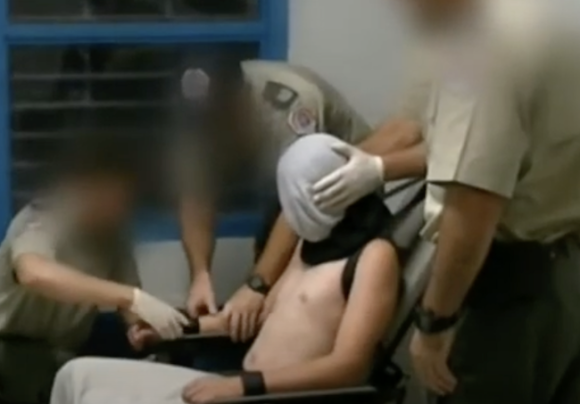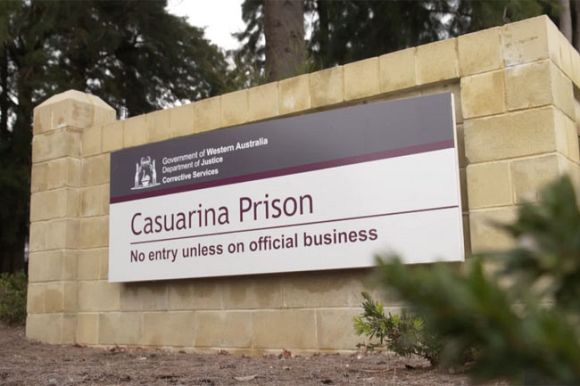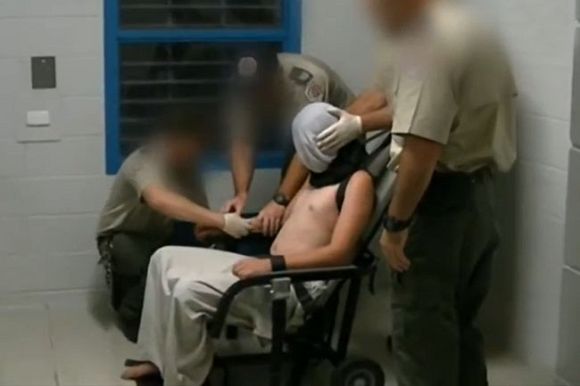I write this as a memorial, a celebration of my friend, Mervyn Langford, who died on 14 July 2024.
I first met Mervyn Langford in the early 1970s when we were both draft resisters, opposing conscription for the Vietnam War. But Mervyn’s political roots went back far earlier than that.
Merv’s first political campaign began when he was only 14, assisting his mother, Muriel Langford, to garner support for the Referendum in May 1967 to amend the Australian Constitution, which treated First Nations people as second-class citizens and acknowledged them as equal citizens. Unlike the recent Referendum, it was successful with over 90% support.
In the 1960s, attitudes to First Nations people in Australia were generally uncaring and extremely racist. Indigenous people lived in reserves and shanty towns and were regarded as a dying race, not even human, and were not included in the census as members of the Australian population. It took courage to regard them as equals, to stand shoulder-to-shoulder with them — but that is what the Langford family did.
Muriel Langford was a spokesperson for One People of Australia League (O.P.A.L.), which founded O.P.A.L. House, Brisbane’s first hostel for First Nations people in Russell Street, South Brisbane in 1961.
Jackie Huggins, who performed the acknowledgement to country at Mervyn’s memorial, quoted a passage about O.P.A.L. in her mother Rita Huggins’ book, Auntie Rita:
O.P.A.L. was for people like me who no longer lived on the reserves and had to move into towns and was a first step towards helping Aboriginal people. It gave White people another picture of us that they had never seen before. We had been out of sight and out of mind before that. We were decent people and this could be seen now. We were just as good as White people, but different to White people. It brought Aboriginal and non-Aboriginal people together for the first time, I began to feel like an equal. We became friends and socialised together. This was one of the most important parts of O.P.A.L. for me.
Jackie Huggins called the Langfords “our first White family”. Mervyn was the youngest and they often spent weekends together, selling badges in town and campaigning for the Referendum. With his blonde surfie look, he was polite, charming and acted as a big brother for the little Murri girls.
Huggins said:
He would always have our backs and he did, right up until the day he passed.
The Langford family never left us. Nor did we. When I saw Mervyn, he always called me sister and I called him brother and people would look at us and say what's the connection? We don't look anything like it do we?
Just before he died, Mervyn went on a journey from Brisbane to Alice Springs and he caught up with Jackie Huggins’ cousin, Peter Holt, in Longreach.
Mervyn sent this message:
‘I've had a fabulous, marvellous time with Peter. 58 years since we met. Being part of the Murri community in SE Queensland has been one of the greatest, most important factors and worldview highlights of my life. I thank you for that.’
Folk and communists
Support for the 1967 Referendum campaign came from the churches, the trade unions and the Communist Party, who were still influential then. In addition to controversy, the communist influence brought with it Mervyn’s other great love – folk music and bush ballads – through the influence of John Manifold and his circle.
Manifold was a Victorian squatter’s son, who was educated at Geelong Grammar, worked for UK intelligence during the war and then became a communist. In 1949, he settled in Wynnum in Brisbane’s south. Inspired by Russell Ward’s The Australian Legend, Manifold collected Australian bush ballads and published anthologies of Australian folk songs. His bush band, The Bandicoots, regularly performed at his home and elsewhere, and his home became a bayside salon for Brisbane poets, folk musicians, leftists and First Nations activists.
In this milieu, Mervyn's love of folk songs and bush ballads flourished. He was an enthusiastic performer, a livewire, who would quote with gusto, How McDougall Topped the Score, from memory at parties after cricket. I recall him singing, with similar gusto, a song he’d written about Julian Assange set to the theme music from the TV series, Robin Hood.
In the last decade of his life, Mervyn developed into an impresario, using the hall at Magda’s to produce plays and musical events. He threw himself into Magda’s with characteristic energy. Manifesting his inner Manifold, Magda Arts was a significant cultural influence in Brisbane’s western suburbs until COVID and the city council closed it down.
The Bardon Consultative Group
The career Mervyn chose was to be a carer, like his mother, Muriel. He and his partner, Joan Rook, became nurses and were posted to the Kingaroy Hospital in the 1980s. There they raised four children, Rupert, Caitlin, Aiden and Piers, in a beautiful old Queenslander with views over the Bunya Mountains, living a semi-hippie lifestyle with ducks and goats and other farmyard animals, holding birthday parties boasting bush ballads and folk songs, and hosting visiting Brisbane radicals in the heart of Bjelke-Petersen’s stronghold.
Joan Rook came from a Quaker background, and she shared with Mervyn a view that nursing was more than a series of tasks, like taking vital signs and dispensing medication, and involved giving something of yourself, making a human connection. To friends, Joan seemed the calm that centred Mervyn’s constant energy.
On returning to Brisbane, Mervyn worked as a nurse in the Queensland prison system, working there for three decades. In his final four years, Mervyn became deeply involved as an activist for prison reform with former Queensland Corrective Services Commission director general Keith Hamburger and the Bardon Consultative Group.
In February 2020, the Queensland Productivity Commission (QPC) released the Inquiry into Imprisonment and Recidivism, showing Queensland’s prisons were overflowing. The report gave an overview of the prison industry in which Mervyn worked.
First Nations people were grossly over-represented in the Queensland prison population. They made up only 4.6% of the population but made up 31% of the prison population. Of the tens of thousands of prisoners cared for by Mervyn in his three decades of service as a prison nurse, one in three were First Nation men.
Another 20% of the prison population were people with drug offences and other non-criminal offences. The QPC report suggested the Queensland Government needed to question whether the current reliance on incarceration as the solution to many health and social problems was working.
(Queensland has only the third highest rate of imprisonment of Indigenous people in Australia. Western Australia (43%) and the Northern Territory (84%) are higher.)
Keith Hamburger was the director general of the Queensland Corrective Services Commission from 1988 to 1997 when Mervyn began working in the prison system. In 2020, I interviewed him about the QPC report and found he was a passionate advocate of prison reform and restorative justice.
A pleasing aspect of journalism is it allows you to connect people. I introduced Mervyn to Keith Hamburger and they hit it off from the start, bonding over their mutual interest in justice reform for First Nations youth.
Although they made an odd couple, as Keith Hamburger related at Mervyn’s memorial:
As you can see, I'm a sort of a short back and sides, conservatively dressed sort of person with an approach focused on due process. Well, Mervyn, I'll just see if I can describe him adequately, but he was a long-haired, scraggly, bearded hippie from a bygone era and I think it's fair to say he had a questionable dress sense. He rode a push bike and he got his jollies from poking fun at the establishment.
As an example of his irreverence, very early in our association, Mervyn nicknamed me the Quarter Pounder. And he introduced me to people like that. I'm not sure, but I think it has something to do with my name. Anyway, at that first meeting, I knew that I was in the presence of a very special person, clearly a fine intellect with a great respect for history and how we should learn from the mistakes of the past.
Mervyn was a deeply caring person who had spent 30 years as a health professional, working at the coal face in a high-security prison, treating an endless stream of First Nations people who disproportionally made up one-third of the Queensland prison population. In Keith Hamburger, he found a kindred spirit.
After spending a decade overseeing the Queensland prison system, Keith Hamburger spent the next two decades researching penal policies around the world and acting as a consultant on prison reform for other jurisdictions in Australia and overseas. In their many meetings, the pair shared their war stories, relating to their interaction with prisoners, many quite humorous and many very sad.
Mervyn convened the Bardon Consultative Group, which was a mixture of prison reformers, and the Aunties and Elders who were his mother’s friends from the 1960s Referendum days. He introduced them to Keith Hamburger, who spoke about his scheme to develop a new strategy to treat young First Nation offenders.
Young people needed education, to develop skills and to have good role models, not to be punished in adult prisons and have criminals as their role models, Keith argued. Nor was he a fan of huge 1,000-plus prisons. His scheme was to set up a small 25-bed community prison on First Nations land, where young offenders would receive skills training and cultural education, as a proof-of-concept test on cost and rates of recidivism. For Mervyn, the Bardon Consultative Group marked a return to his O.P.A.L. roots and the completion of the journey of his working life.
What Mervyn gave Keith Hamburger was an ally and a team of supporters in the Bardon Consultative Group. The life of a humane prison reformer is very tough, struggling against the outrage machinery of the Murdoch press and the radio shock jocks and their law-and-order politics.
For many years, Keith Hamburger had been advocating the Queensland Government to adopt a reform model for juvenile justice and adult corrections that would reduce crime, reduce incarceration rates and save billions. As he remarked, he’d done everything he could to convince the Government of the need for reform, except offer them a bonus set of steak knives.
Mervyn immediately saw the challenges Keith was facing as a great opportunity, and he and fellow members of the Bardon Consultative Group got fully behind the reform model. After some initial strategy meetings, Mervyn and the Bardon group worked tirelessly with Keith Hamburger to raise awareness of the need for reform.
Their work was phenomenal. They had meetings with two premiers, ministers, heads of agencies and numerous speaking engagements with community groups. They wrote letters to the editor, did radio and television interviews, wrote submissions to parliamentary committees and had countless strategy sessions, refining the reform model and raising awareness within government and opposition parties across the Parliament.
Great progress was made, but they have yet to achieve the goal of government approval for the proof-of-concept test for handling young First Nation offenders. Keith Hamburger remains hopeful that Queensland will see a breakthrough in achieving justice reform. Before he met Mervyn, his wheels were spinning around but he was going nowhere, he said.
Mervyn took charge, assembled a team of like-minded people, led the thinking on strategy and focused the message. “We've made huge progress, so we now have cause for optimism,” he said. When they do, Queenslanders will owe a debt of gratitude to Mervyn, said Keith Hamburger.
If you want to find out more and support the Bardon Consultative Group plan, click here.
Dr John Jiggens is a writer and journalist currently working in the community newsroom at Bay-FM in Byron Bay.
 This work is licensed under a Creative Commons Attribution-NonCommercial-NoDerivs 3.0 Australia License
This work is licensed under a Creative Commons Attribution-NonCommercial-NoDerivs 3.0 Australia License
Support independent journalism Subscribe to IA.

















